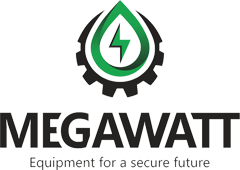What is the Efficiency of a Diesel Generator Set?
2024-10-25
The efficiency of a diesel generator set is a crucial metric that determines its energy utilization performance. Understanding this efficiency is essential for evaluating the cost-effectiveness and suitability of diesel generators in various applications, including hospitals, industrial settings, and emergency power systems.

The efficiency of a diesel generator set refers to the proportion of input energy that is converted into useful electrical output. This is calculated as the ratio of electrical energy output to the chemical energy input from the diesel fuel. Typically, a diesel generator will run at about 40 percent efficiency in its designed optimum operating range, usually up to 80 percent of its total load capacity. In simpler terms, for every 100 units of energy input, approximately 40 units are delivered as electrical output.
Factors Influencing Diesel Generator Set Efficiency
Several factors contribute to the efficiency of a diesel generator set:
Fuel Quality: The quality of diesel fuel plays a significant role in determining efficiency. High-quality fuel can provide higher combustion efficiency, converting more chemical energy into mechanical energy. Conversely, low-quality fuel may contain impurities, leading to increased pollution and reduced efficiency.
Engine and Generator Design: The design of the engine and generator also affects efficiency. Efficient combustion chambers can better mix fuel and air, enhancing combustion efficiency. Additionally, advanced turbocharging systems can improve intake efficiency, allowing more air to participate in combustion, thereby boosting efficiency.
Energy Losses: As with any mechanical system, diesel generators experience energy losses due to heat and friction. These losses occur in the engine, transmission, and generator components. Reducing these losses through advanced designs and materials can improve overall efficiency.
Operational Conditions: The operational conditions of the diesel generator set, such as load variations, ambient temperature, and maintenance status, also impact efficiency. Operating within the optimal load range and maintaining the generator regularly can help maintain high efficiency levels.
Improving Diesel Generator Set Efficiency
Several strategies can be employed to improve the efficiency of diesel generator sets:
High-Quality Fuel: Using high-quality diesel fuel ensures optimal combustion, minimizing energy losses and maximizing efficiency.
Advanced Designs: Adopting advanced engine and generator designs, such as efficient combustion chambers and turbocharging systems, can significantly enhance efficiency.
Regular Maintenance: Regular maintenance, including oil changes, filter replacements, and inspections, can keep the generator in good working condition, reducing friction and heat losses.
Load Management: Operating the diesel generator within its optimal load range can help maintain high efficiency levels. Avoiding overloading or underloading can prevent inefficiencies due to load variations.
Heat Recovery Systems: Implementing heat recovery systems can capture and utilize waste heat from the generator, thereby improving overall energy utilization.
























